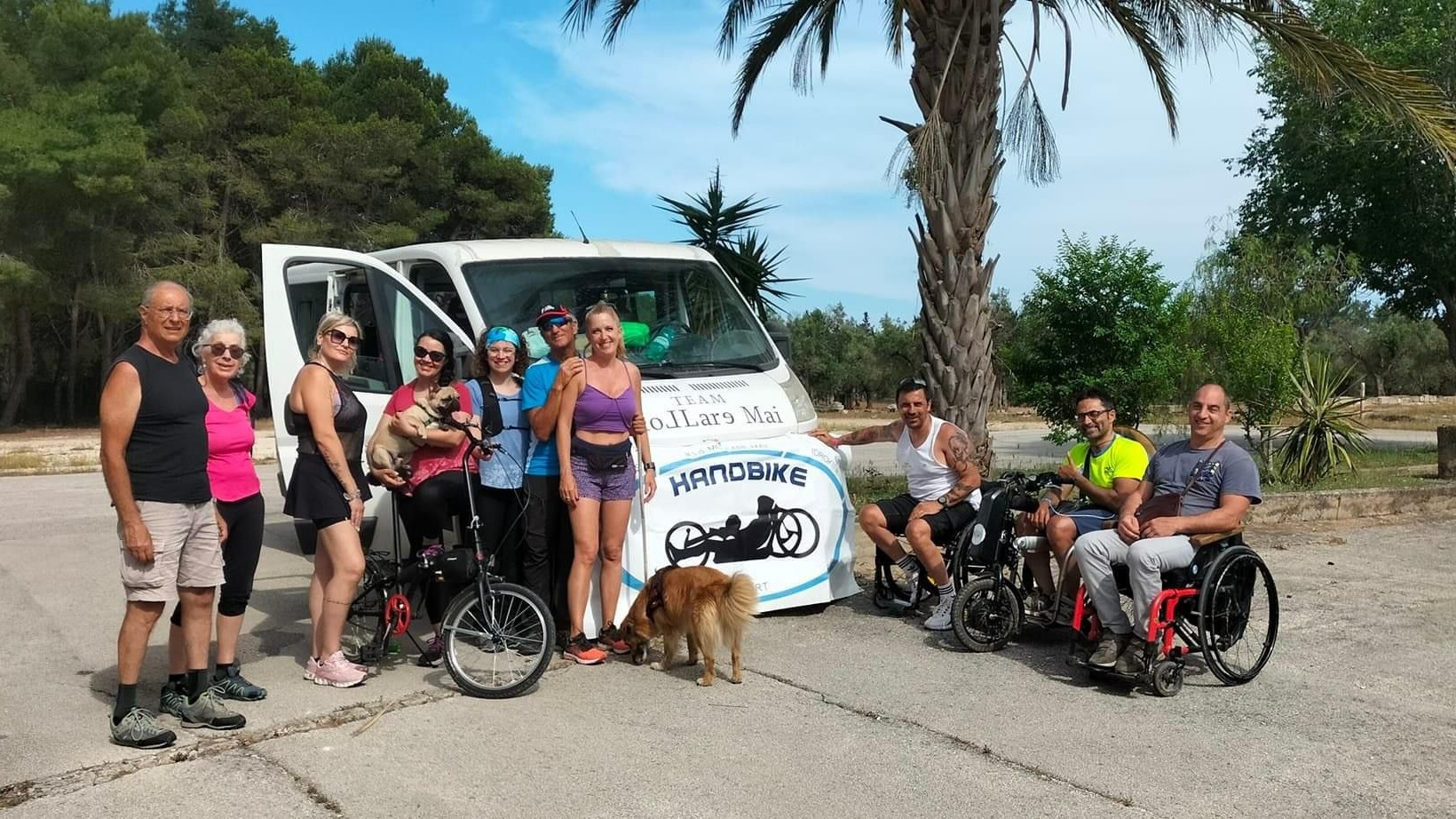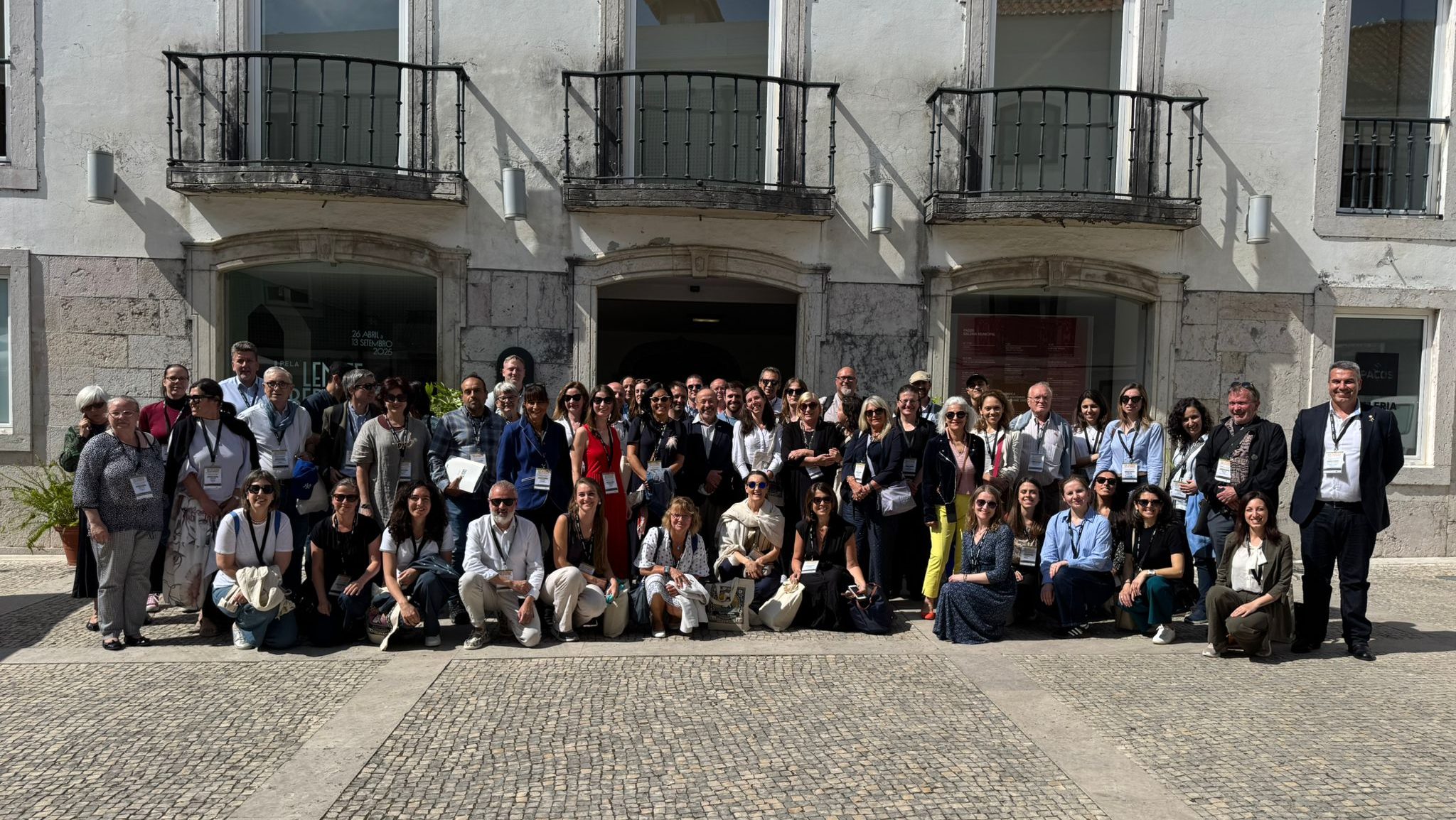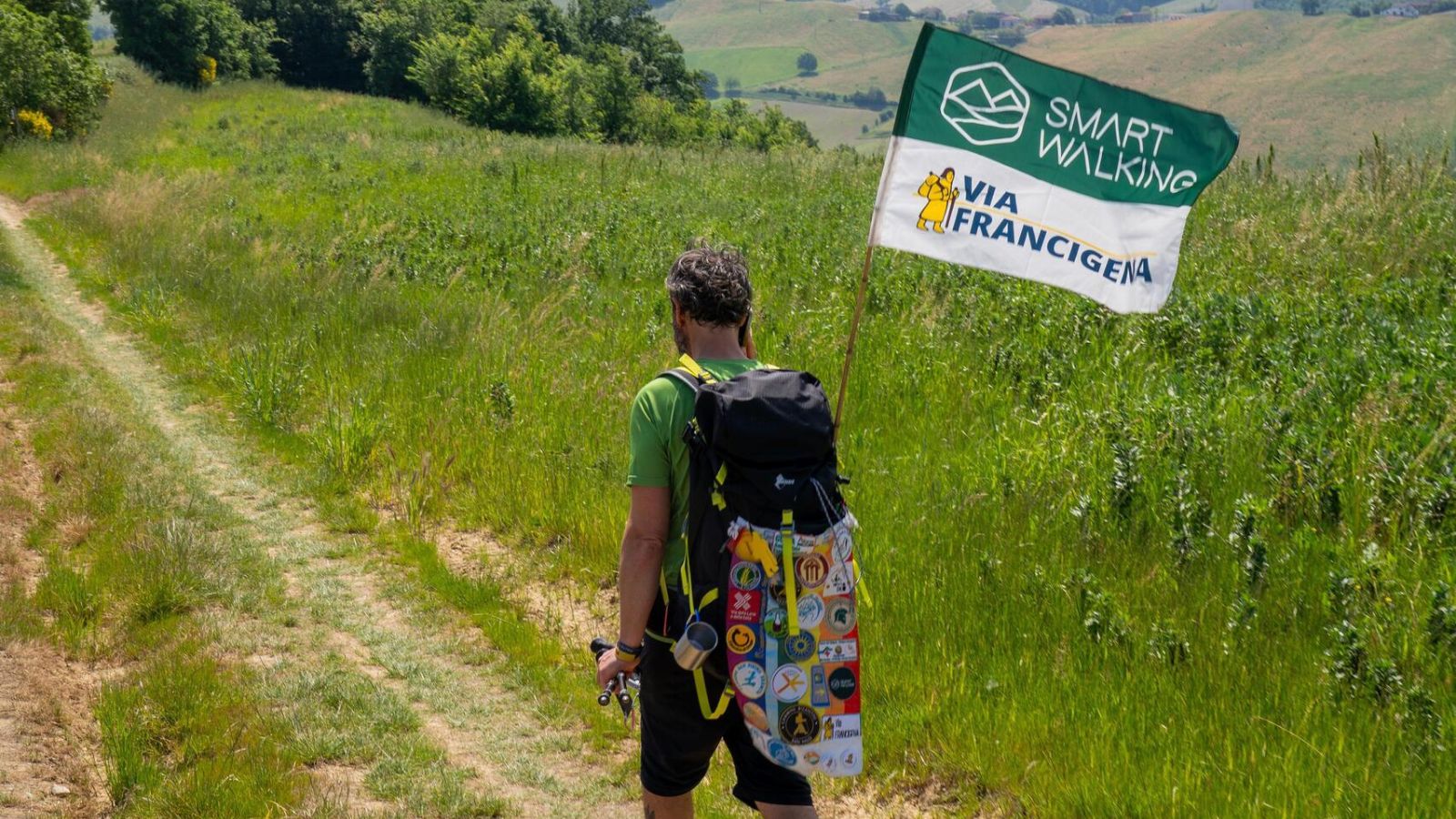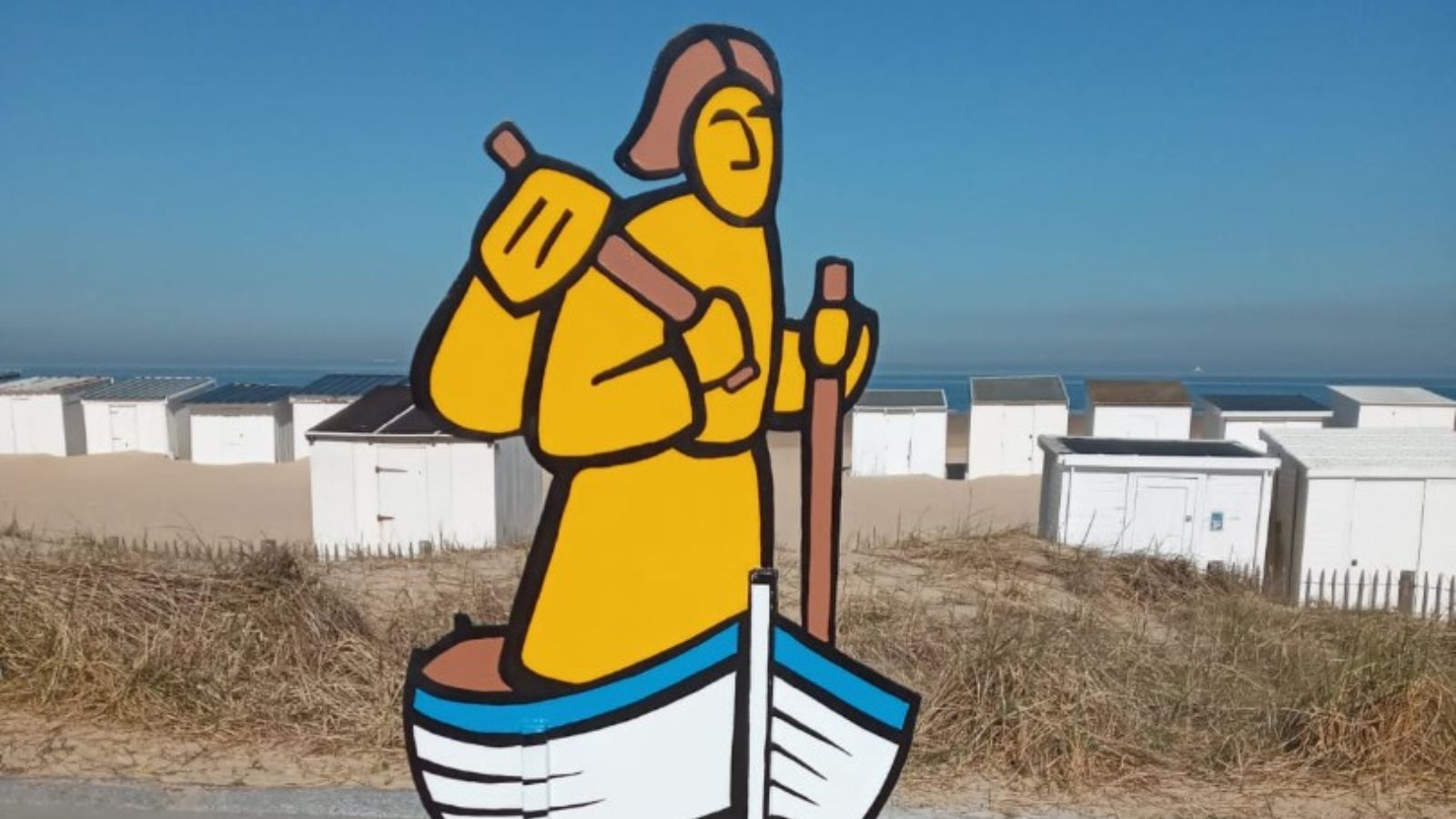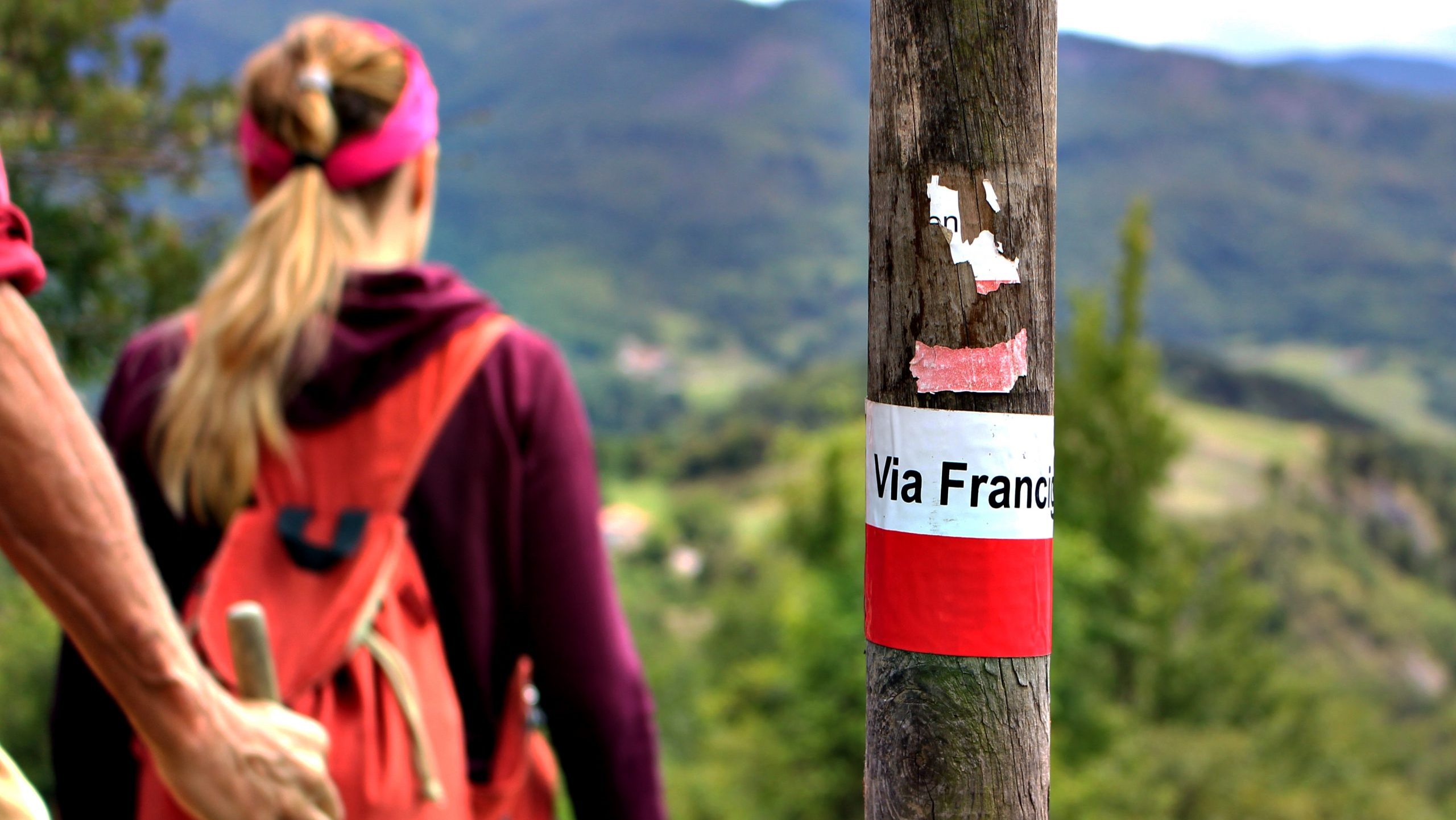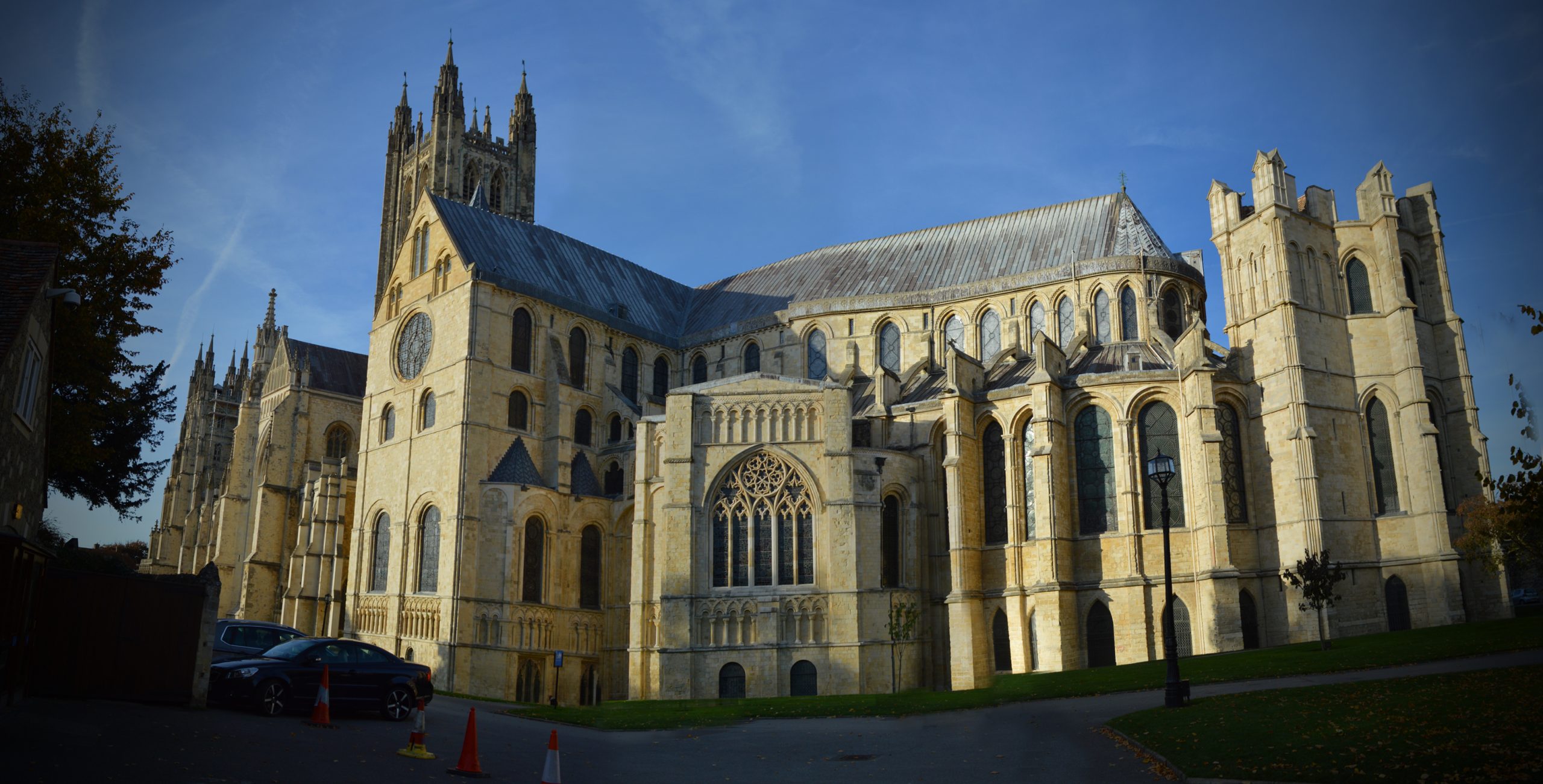The cultural value of the Via Francigena in Southern Italy (VFS) is growing. It is now in the spotlight, as is distinctive of ‘common goods’, with a development program closely linked to the search for sustainability – a principle underlying the development of all the itineraries in Europe – while paying attention to the needs of people with disabilities.
This is also the objective of those who live along the final stretch of the VFS, where a network of cultural associations (Mollare Mai, Via Francigena Pugliese, Salentofilia, Associazione Ciclistica Torcito Bike, Meditinere Servizi Turistici, Il Giunco) operates, attentive to the needs of walkers with disabilities on their way to Santa Maria di Leuca. The common feeling is that cultural routes and itineraries accessible to all should be understood not only as a form of social responsibility but also as an opportunity to increase their promotion, to improve their competitiveness for tourism purposes and to offer new opportunities to the territory, to businesses and to all local stakeholders who undertake useful actions to meet the specific needs of people with disabilities, becoming an active part of a responsible and sustainable tourism strategy.
In order to make the final part of the Via Francigena in Southern Italy accessible to all, activities carried out by ADS Mollare Mai, established in 2017 and based in Serrano, a small village in the municipality of Carpignano Salentino in the province of Lecce, are particularly significant.
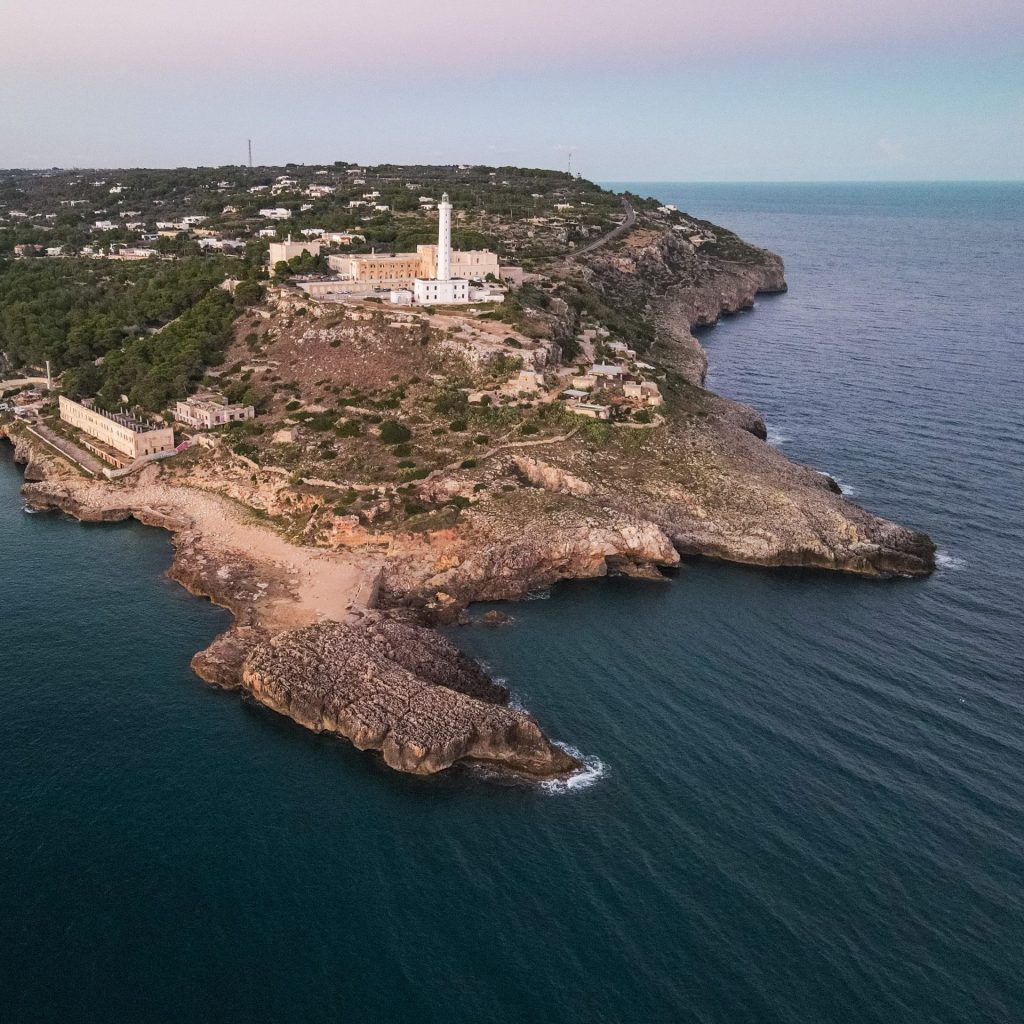
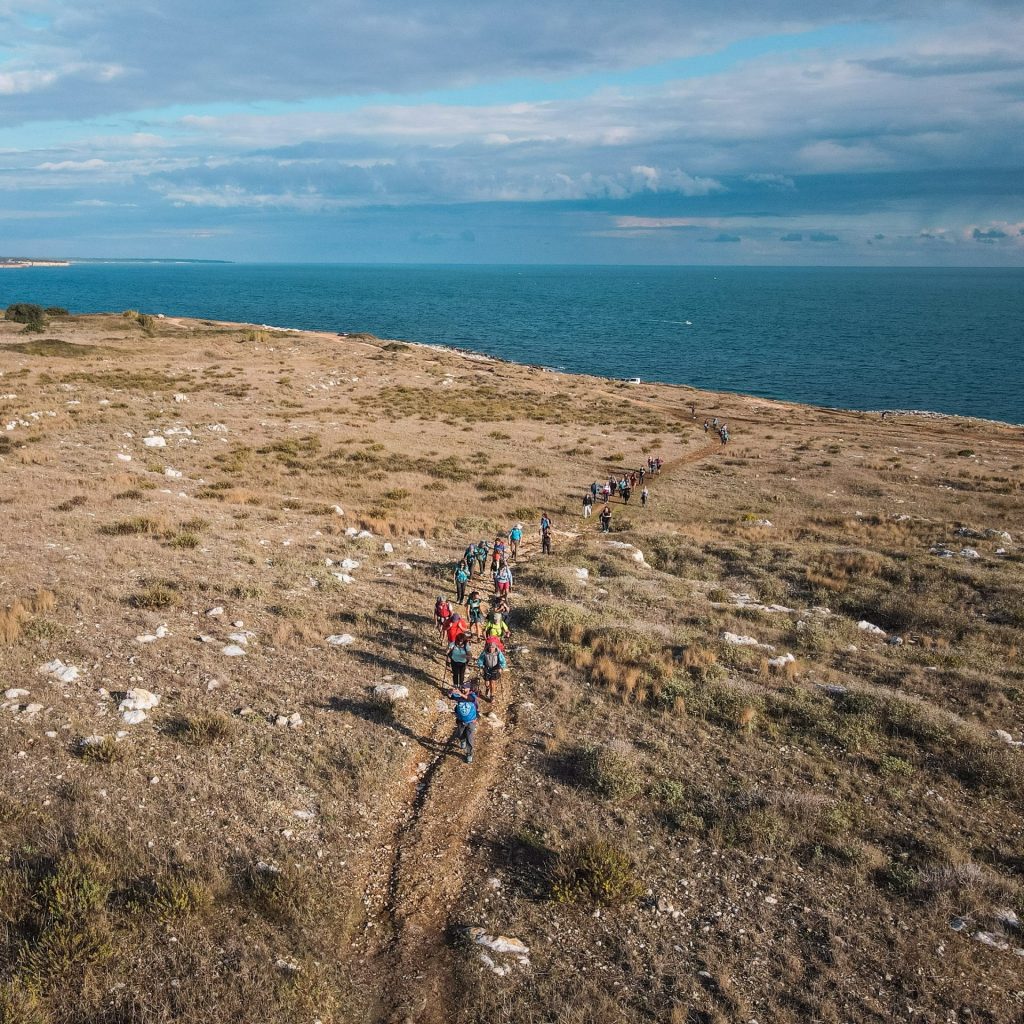
The challenge of accessibility
“The Via Francigena accessible to the disabled” was the challenge posed by Adriano Bolognese, president of the Mollare Mai Association, a handbike cycling athlete, who, together with the members of his association – impaired visually, motor, etc. – has taken on the challenge of ‘making the Via Francigena accessible to the disabled’. In collaboration with Marco Bartalini of the ASD MTB Tricase Association, he mapped the stretch of the Via Francigena in Southern Italy that goes from Brindisi to Santa Maria di Leuca, identifying the most critical points of the route and suggesting the necessary deviations to make the path accessible to people with disabilities.
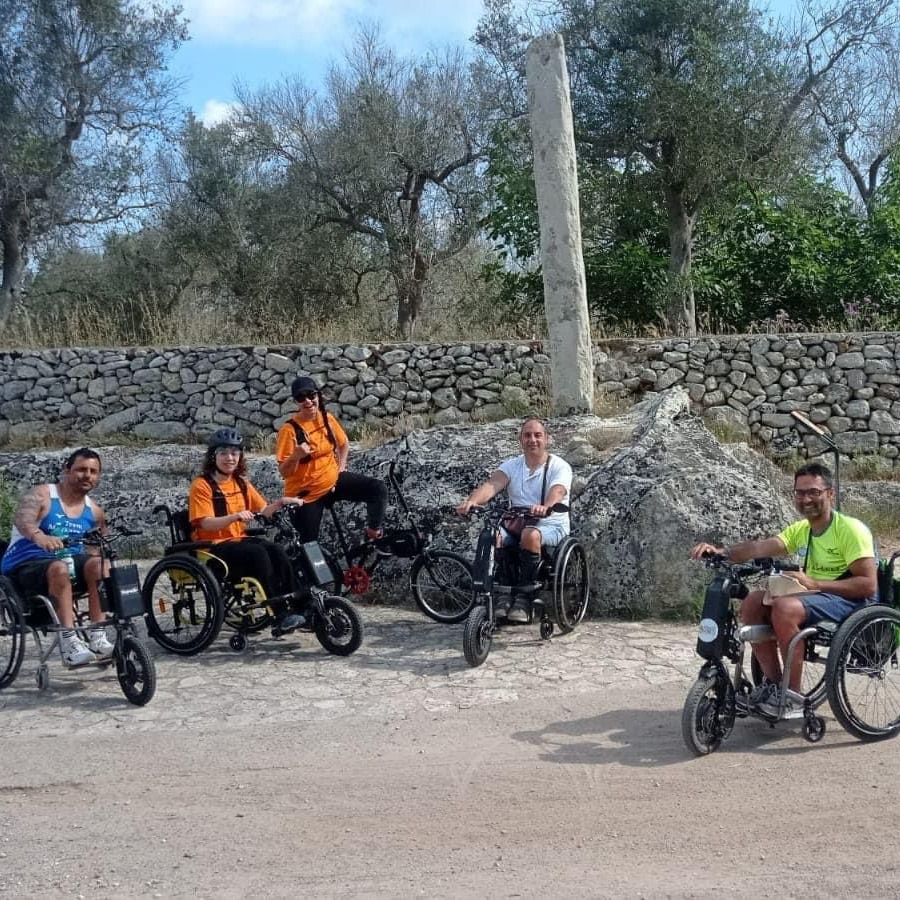
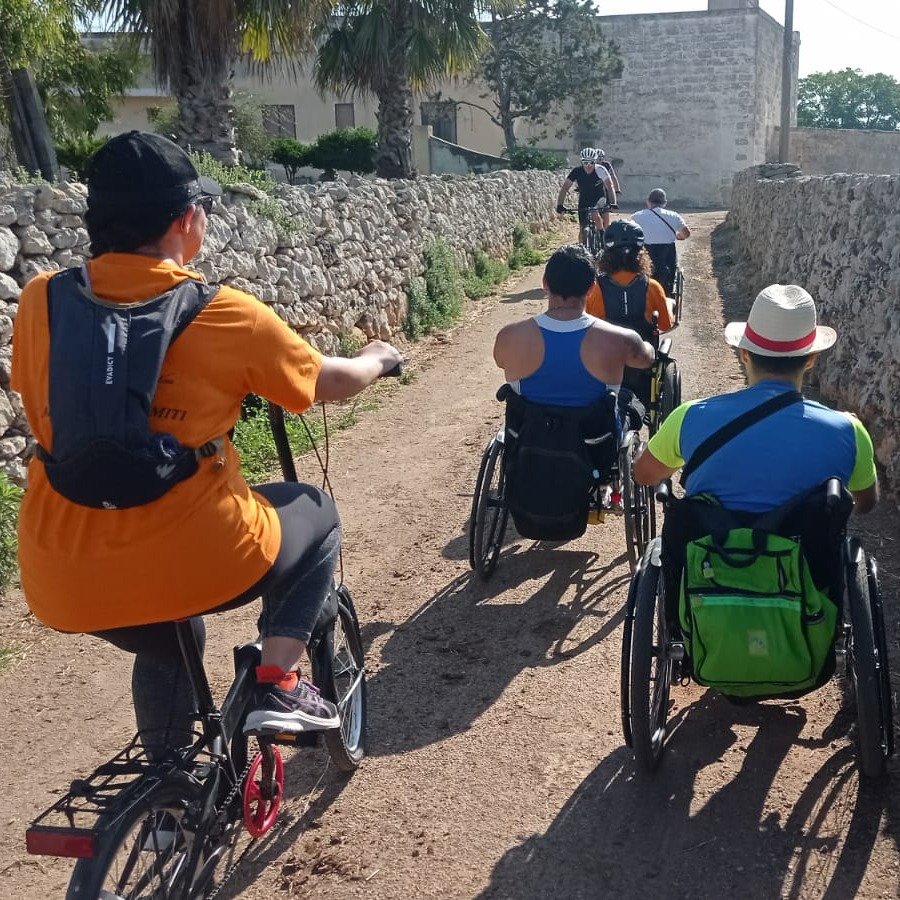
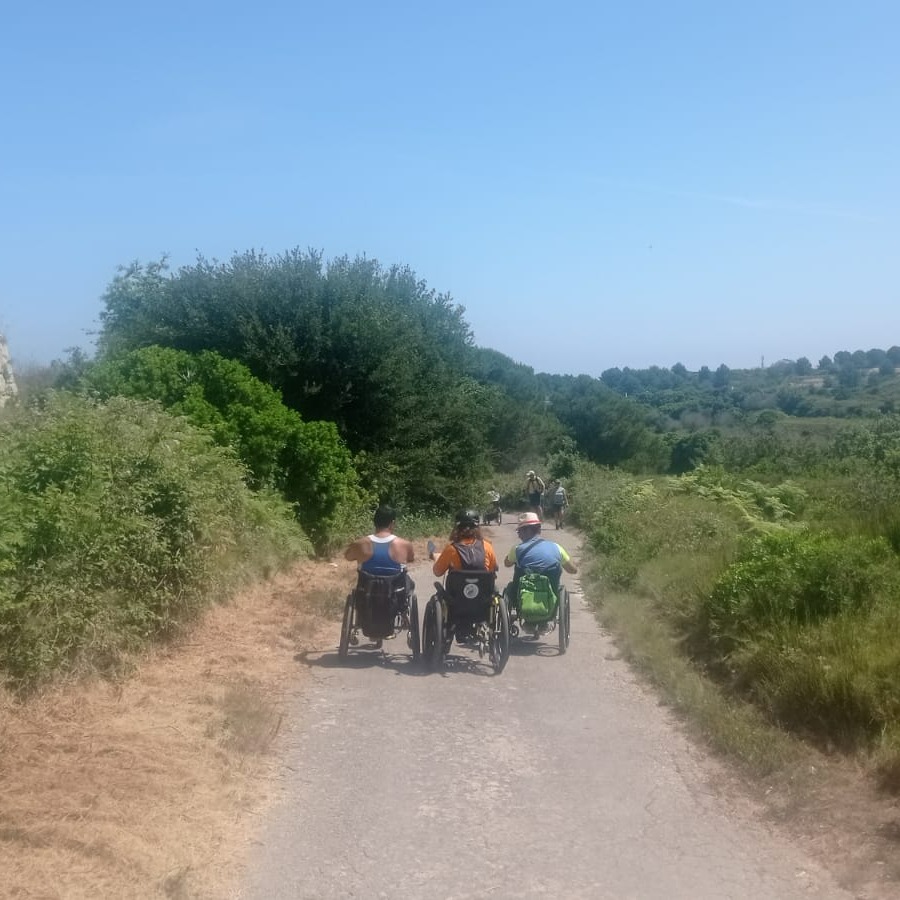
In addition to this first initiative, the Mollare Mai Association has flanked many other projects aimed at offering cooperation to disabled walkers and raising awareness among communities, local authorities and regional authorities on the need to build a sustainable VFS, offering services and facilities usable by people with disabilities.
The solidarity initiatives
In December 2020, for example, in collaboration with other walking associations, “La Marcia della Speranza” (The March of Hope) was promoted by covering a 40-kilometre stretch of the Via Francigena in Salento with a group of disabled people. In October 2021, the Association took part in the “Road to Rome 2021“ event organised by the European Association of the Via Francigena ways, covering parts of the Salento area. In April 2022, they took part in the Salento Trans Salento from Otranto to Gallipoli: a slow march of 50 km of the duration of one full day, with the aim of identifying a possible easier route for disabled travelers.
It should be emphasised that the Mollare Mai Association also provides guidance and logistical support on the stretch of the Via Francigena from Lecce to Santa Maria di Leuca for walkers and disabled ramblers from other Italian regions. Among other activities, it is worth mentioning the service offered in January 2023 to a group of walkers with a wheelchair user from Padua; in August, the service of guidance and assistance (for a stretch of the Via Francigena from Martano to Tricase) for a group of disabled walkers (from the ‘Insuperabile’ project created in 2019 by Gabriele Rosa) with physical or cognitive pathologies or disabilities and their assistants, coming from the Sanctuary of La Verna in Rimini and wishing to reach Santa Maria di Leuca after 21 days of walking.
There are many initiatives aimed at raising awareness in the local community on the importance of barrier-free walking for people with disabilities. In 2022 (May-October) and 2023 (March-May), for example, the Association launched an initiative called “Fra le piazze del Salento” (Among the squares of Salento), aimed at groups of disabled people and their families/accompanying persons, which included cultural walks with visits to monuments located in numerous towns in southern Salento (Marittima, Surano, Ruffano, Giurdignano, Martano, Casarano and Castro, Otranto and Corigliano D’Otranto). In June 2023, it organised the first edition of the ‘Cammino delle pietre e dei laghi’ (Stones and Lakes Walk), a 56 km inclusive ring-route in the province of Lecce, and again, in July of the same year, the group ran a 30 km bicycle or handbike or electric-powered route in Salento Greece with 6 disabled and 20 able-bodied people.
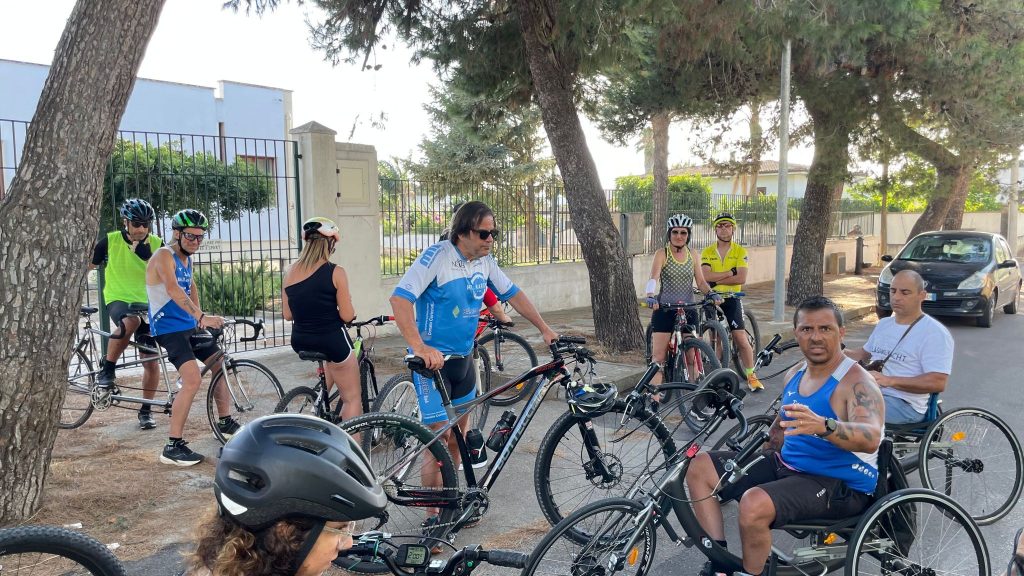
Mollare Mai also drew up project proposals and launched communication and information campaigns on the accessibility of routes, building a network of interest between public and private entities. The local community was involved, for example, in activities aimed at good wheelchair use and the removal of architectural barriers. It dedicated training meetings on disability to the students at some schools, also linked to the world of work (see the meetings held in Poggiardo in October 2023). For the workers with disabilities, it devoted taylor-made courses to approach sports with the use of handbikes, accompanied by recreational and playful activities such as working with terracotta, painting, making objects with recycled materials, theatre activities, restoration courses, cooking courses, vegetable garden therapy and library management.
The good practices of the Mollare Mai Association in the promotion of routes and developing the VFS to also be usable by disabled people have been recognised by the Ministry of Culture and the Ministry of Tourism. In June 2022, they respectively invited the Association to present its experiences of walking with disabled people within the Cultural Routes for Sustainable Social and Economic Development in the Mediterranean (CROSSDEV) project and, in May 2023, to participate in the Chianciano Terme meeting for a discussion on the removal of barriers: perhaps this is the start of a hoped-for collaboration and of s good care for the issues of accessibility of the Routes, that can really be enjoyed by everyone?



